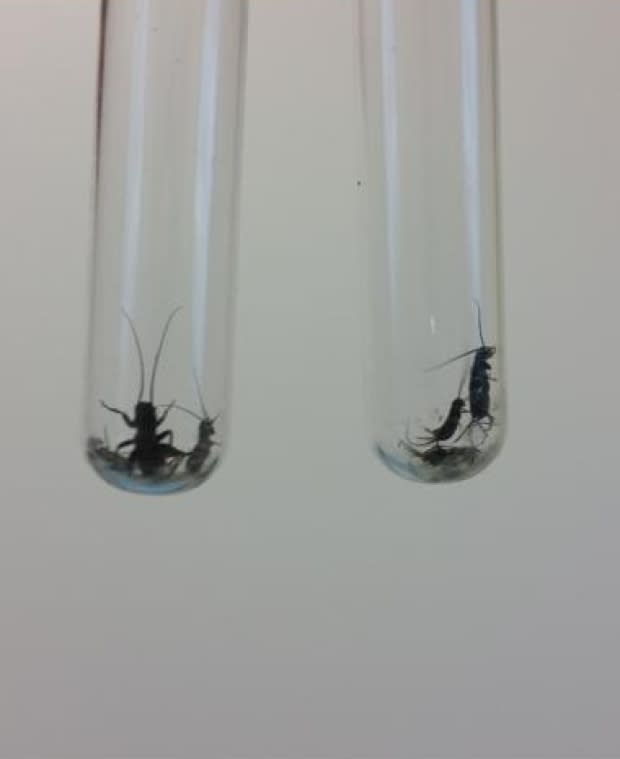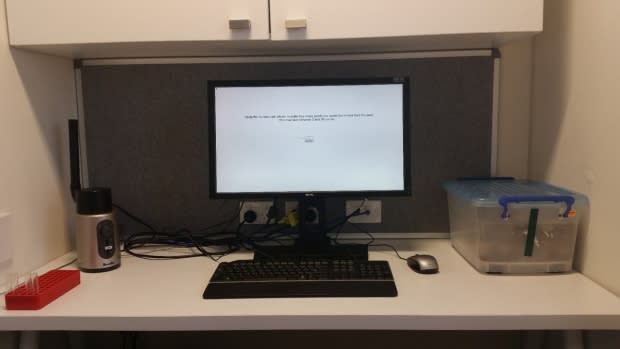Could crushing live crickets change the way we think about climate change?
People are inundated with headlines about climate change and scientists say unless we all make changes, the consequences could be catastrophic. But why aren't more people making environmentally friendly choices?
A group of psychologists say they could have the answer — and it comes from a game involving live crickets.
It may sound odd, but the study published in the Journal of Environmental Psychology used a common resource dilemma game — a research tool used to help understand how people behave in strategic situations.
In the game, players share a limited resource, like fish in the sea. If each player limits how much they take, the resource will last longer and players will get more in the long-term. But they can't be sure other players will do the same, so the best strategy is to take as much as they can in the short-term, meaning the resource gets depleted quicker. This scenario is known as the "tragedy of the commons" dilemma.

"The trick is that as soon as someone starts taking a lot for themselves that potentially puts a resource at risk and people start to think 'well, if everyone else is taking too much, I'm going to take a lot more too,'" explained Brock Bastian, an associate professor of psychology at the University of Melbourne, Australia.
Bastian said in these games, players usually win points or money, but researchers wanted to see if attaching a non-monetary or moral value to the resource would change people's behaviour.
In the study, players were told if they took too much of the resource, live crickets would be killed, but they weren't told the limit of the resource.
Bastian said no crickets were harmed in the study, but participants believed crickets really would be killed. Before the game, players were shown a container of the live insects attached to a coffee grinder. A computer was set up to play the "horrible sound" of a coffee grinder at the touch of a button.
"Participants were not happy with us but once they worked out that we weren't actually putting crickets into the coffee grinder they were much happier," he said, noting players were later told the reasoning behind the decision.
"That was part of the reaction that we wanted to achieve was to have people feel … viscerally affected by whether or not that resource was going to get harmed as a part of playing that game. You don't get that response when you're just looking at points or money."

Researchers found participants did limit their consumption of the resource when they were concerned about crickets being harmed and their behaviour was influenced less by other players' actions.
"We need to sometimes communicate not only the value of the resource for humans and why we need to preserve it for humans but also … put a moral frame around the resource sometimes and communicate the value of protecting that thing for its own rights," Bastian said of the takeaway message.
He said this is because people are more likely to act on concrete rather than abstract information.

An article on the study published in Scientific American by Bastian and Paul van Lange, a professor of psychology at VU Amsterdam, gives a number of examples of this concept.
When it comes to climate change, Bastian used the example of choosing between riding a bike or driving a car to the store. He said while people know riding a bike may be better for the environment, driving a car is easier and faster and the potential long-term impacts are abstract.
"This has implications for how we might market and communicate these sorts of issues to people and to ensure that we're making them concrete and less abstract that people can engage with them and weigh them into their decision making effectively."
In the article, Bastian and van Lange give examples as to how climate change impacts can be moved from the abstract to the concrete.
"Perhaps witnessing the cutting of trees, or the fearful responses by many mammals, may help people make more sustainable choices. The message from this research is that sometimes if people have access to some concrete consequences — for example, if the cutting of rain forest implies the crushing of animals, even insects — people may become less focused on immediate economic gain for themselves."


